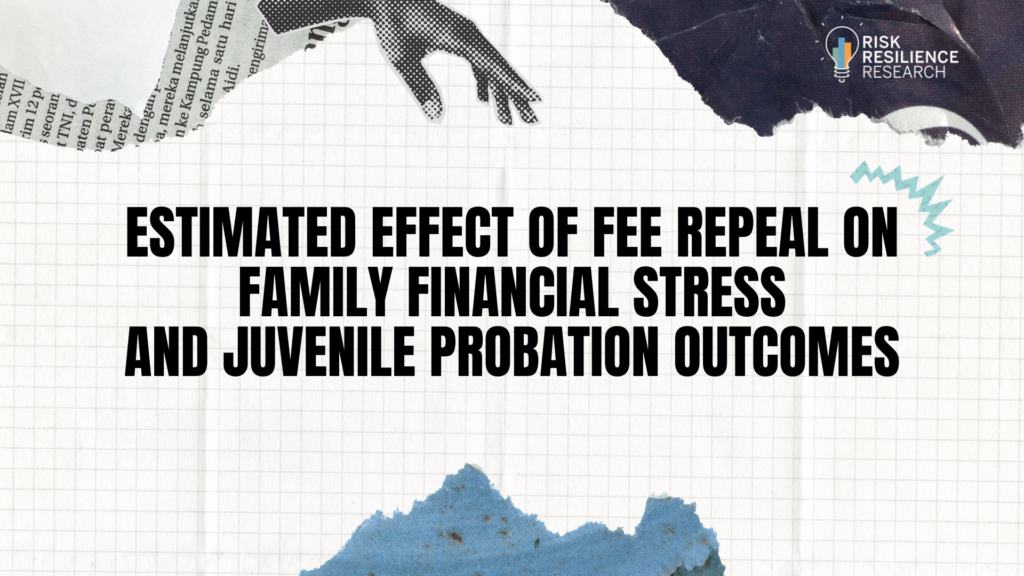Juvenile Fee Repeal in Alameda County

What is the study about?
The research study, led by Dr. Jaclyn E. Chambers, Dr. Jennifer Skeem, Dr. Luyi Jian, and Dr. Karin D. Martin, focused on the effects of repealing juvenile probation fees in Alameda County, California. This policy change aimed to reduce financial stress on families and improve juvenile probation outcomes by eliminating the monetary burden associated with probation fees. The study investigates how removing these fees impacts family financial stress and the outcomes for juveniles on probation, with a focus on the broader implications for family stability and juvenile justice reform.
What did we ask?
- How does fee repeal affect the likelihood and amount of monetary sanctions on families?
- Does fee repeal influence the length of probation for juveniles?
- How does fee repeal impact the likelihood of juveniles being re-arrested?
What did we find?
- Financial Relief: Fee repeal reduced the likelihood of families experiencing monetary sanctions by 22.2% and decreased the total amount of sanctions by $1,583 on average.
- Probation Length: Juveniles’ probation terms were shortened by over four months (133 days).
- Recidivism: No significant difference in re-arrest rates was observed.
Why does it matter?
Repealing juvenile probation fees can significantly reduce financial stress on families, shorten probation terms, and improve overall family stability without increasing recidivism rates. This policy supports more equitable outcomes in the juvenile justice system.

